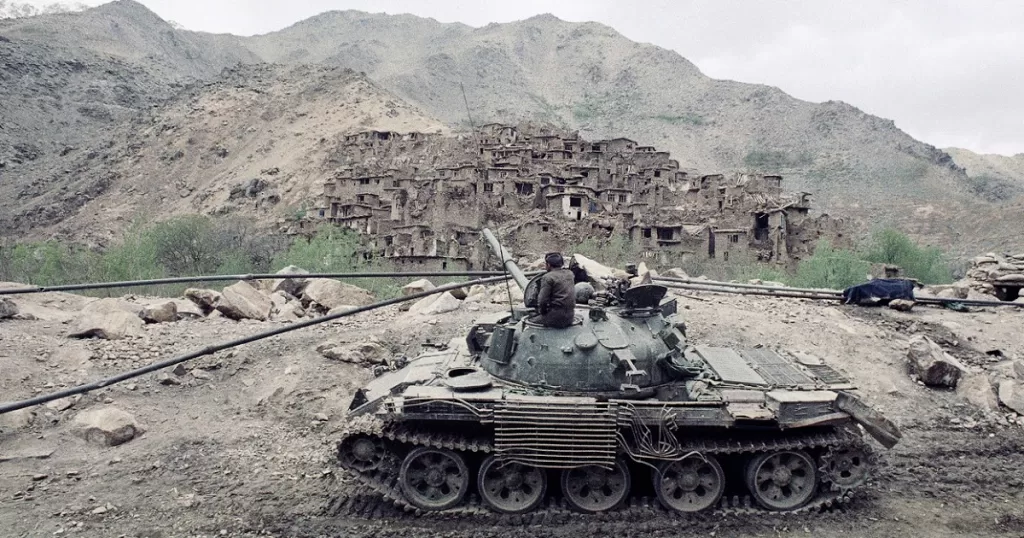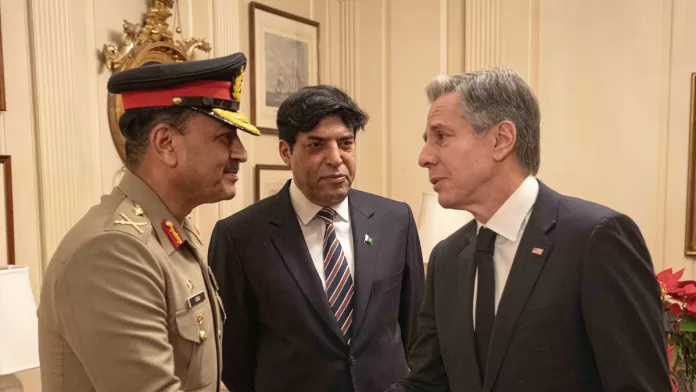Context
Since the US withdrawal from Afghanistan in 2021, the Afghan Taliban character has been evolving and so are ties with Pakistan. The widely held apprehension that US exit will make Tehreek-e-Taliban Pakistan (TTP) bolder is coming to fruition – as the number of TTP linked extremist attacks continue to rise in Pakistan with Baloch insurgency also simmering. At the same time, there is a role reversal. While in the past US relied on Pakistan to assist in dealing with matters related to the Afghan Taliban, now, as Pakistan’s ties with Afghan Taliban deteriorate, it is resorting to seek US help to address the extremist menace emanating from Afghan soil. Pakistan’s Army Chief’s visit to the US reportedly was primarily to seek military cooperation to tackle the TTP threat. Conversely, the US emphasis is on economics and climate change. There are a few grievances in Pakistan-Afghanistan ties. One, Pakistan has consistently demanded that Afghan Taliban deal sternly with TTP and Islamic State’s Khorasan branch (IS-K) operating from Afghanistan. US shares concerns related to IS-K but not necessarily TTP. Although, in the past, US has assisted Pakistan in going after high value TTP targets through drone strikes,Pakistan’s decision to deport illegal Afghan refugees has added stress to the bilateral ties. On the other hand, US seems to be increasingly satisfied with Afghan Taliban for pressure on IS-K, which makes them less likely to act against its erstwhile ally TTP. This creates a dilemma for Pakistan. Additionally, US intelligence indicates that Al Qaeda (AQ) has been weakened to the point of extinction. Pakistan is thus looking for convergences in its ties with the US to confront TTP by exerting pressure on Afghan Taliban.
Since the removal of Pakistan’s Tehreek-e-Insaf (PTI) government in 2022, Pakistan’s policy has shifted away from negotiating with TTP and towards using force – and has thus sought more counter-terrorism assistance. Ironically, the former Prime Minister had refused any military cooperation with the US in dealing with the extremist threat in Afghanistan – and some analysts pointed to this as the main reason for his removal – in addition to an ill-timed trip to Russia to meet Putin.
Analysis
Zia-ul-Haq, Soviet Invasion of Afghanistan, and Iranian Revolution
Since the Afghan Jihad of the 80s, Pakistan’s security perils have largely been linked to the situation of Afghanistan and periodic military escalation with India. While traditionally political unanimity has existed when it comes to handling India, the case of Afghanistan has led to political polarization and instability in the country – and has impacted its foreign relations in ways that have proved extremely detrimental to the social and economic wellbeing of the nation in the long run.
For example, the Soviet invasion of Afghanistan in December 1979 provided the military ruler Zia-ul-Haq an opportunity to reset his utility for the West. He had earlier removed the political government of Zulfiqar Ali Bhutto in 1977, who was later hanged in 1979. The Iranian Revolution and fall of the Pahlavi dynasty, also in 1979, had greatly unnerved the US – and the Soviet Invasion of Afghanistan fit well with the Domino Theory. These dramatic events in 1979 assisted Zia-ul-Haq to reset ties with the West.
The removal of Mohammad Reza Pahlavi, with which US had cordial ties, represented a shift in the Middle East balance of power. Zia capitalized on the changing winds. With help from the Gulf Arabs and the US, Sunni proxies were created to fight the Soviets in Afghanistan – they also served as an ideological counterweight to the Shiite revolutionaries in Iran. This process also linked Pakistan more closely to the Arabs. The Iranian revolution also initiated a chain of events in the Middle East. Fearing the repercussions on Iraq’s ethnic mix, Saddam Hussein invaded Iran in 1980, a war that lasted until 1988. He also wanted to establish Iraq as the primary force in the Arab world. Saddam invaded Kuwait in 1990, leading to the First Gulf War in 1991. Pakistan sided with the Gulf Arabs and even deployed forces on the Saudi border with Iraq to prevent any invasion.
It was on September 11, 2001, when the Sunni non-state actors that fought in Afghanistan against the Soviets launched a horrendous attack on American soil – and thus started the Global War on Terrorism (GWOT) that sucked in Pakistan once again.
Pervez Musharraf, 9/11, and Global War on Terror (GWOT)
9/11 provided an opportunity to another military ruler in Pakistan to gain international credibility and reset ties with the US. In the aftermath of the 1999 short and bloody Kargil conflict, Gen Pervez Musharraf had overthrown the civilian government in October 1999, removing Nawaz Sharif from power. For this the US had slapped sanctions which were in addition to the ones imposed on Pakistan and India in the aftermath of 1998 nuclear tests. For Musharraf’s support in Afghanistan after 9/11, Bush lifted all sanctions on Pakistan in October 2001.
Prior to 9/11, Pakistan had been one of the few nations, including UAE and Saudi Arabia, that recognized the Taliban government. As the campaign against terrorism progressed, Pakistan focused its efforts more or Al Qaeda and less on the Afghan Taliban – and was accused of providing safe havens for them.
While US got distracted by going into Iraq again in 2003 (Second Gulf War), the Bush administration mounted pressure on Pakistan to launch military operations in FATA and eliminate what it termed as safe havens. Pakistan moved nearly a hundred thousand troops from the Indian border towards Afghanistan to conduct operations which led to internal dislocation of up to 5 million people. US also conducted thousands of drone strikes in FATA between 2004 and 2018 chasing extremist leaders hiding there.
Pakistan’s military operations in FATA, including the Lal Masjid operation in July 2007, accompanied by drone strikes, started to create an ominous backlash internally. It was unclear if the US drone strikes were occurring with Pakistan’s acquiescence – but it would publicly protest the strikes vehemently as violation of its sovereignty.
Many high value targets were hit in Pakistan as extremist reprisal spread, with thousands of civilian and soldiers killed and maimed. According to Dawn newspaper, Pakistan’s economic loss in the war against terror was a figure around $126.79 billion. The security and political turmoil, including the civil-military divide, was reflected by the assassination of Benazir Bhutto in December 2007.
The internal politics of Pakistan had gotten fully intertwined with the support it was providing to the US in the war against extremism, and more importantly, at what cost. While Musharraf had become gradually unpopular, and US grievances with him grew, the assassination of Benazir Bhutto demonstrated that this was a battle for Pakistan’s survival too. The Mumbai Attack in November 2008 created fresh headaches for Pakistan on how it was dealing with what are called good and bad extremists.

General Asim Munir, Post US Withdrawal Afghanistan, and US Pakistan Relations
As Pakistan’s new Amry Chief Asif Munir visits US to reset ties, the above historical context needs to be considered. While the nation’s position to counter threat from TTP has been shifting between a negotiated solution to a military one, with different global powers moving in and out of Afghanistan overtime, Pakistan’s own political polarization is swelling, economic prospects dwindling, and social fiber in tatters. Ukraine may have been imagined as the new Cold War that could help reset ties with the US. However, the events unfolding in Gaza have checked that conceptualization. Meanwhile, the China facilitated Saudi, Iran detente has provided temporary relief and prevented ethnic tensions from boiling.
In retrospect, 1979 was a tumultuous year – the demise of western supported regime in Iran initiated the transfer of the regional balance of power towards the Sunni Gulf Arabs – with Saddam the casualty in the long run. The collapse of the Soviet Union and end of the Cold War by the beginning of 90s meant that the US had won the great power rivalry – with Pakistan’s pivotal role. However, in October 1990, US imposed sanctions in the form of Pressler Amendment. The amendment made military and economic aid to Pakistan conditional on it not acquiring nuclear weapons – and for US administration to certify that to be true. US apparently did not want Pakistan to benefit from their shared victory in Afghanistan.
A stalemate ensued as in-fighting between former mujahadeen leaders and factions in Afghanistan continued in the aftermath of Soviet withdrawal. The affairs finally came to climax as the Taliban took control of almost entire Afghanistan. The popular Taliban opposition leader, Ahmad Shah Mehsud, was assassinated two days before the 9/11 attack. If 9/11 had not occurred, Pakistan and Gulf State supported Taliban would have potentially extended influence further into Central Asia.
What can be expected in the aftermath of the US withdrawal from Afghanistan in 2021, especially when Pakistan has built strategic ties with China, and India has become a strong American ally towards the ambition of countering global rival China? Moreover, unlike Soviet withdrawal in late 80s, following US departure, Taliban are in complete control of Afghanistan, with other players engaging directly with them. Burning bridges with Afghanistan will come at Pakistan’s own expense – and prevent it from gaining any mileage for the immense cost in blood and treasure the nation has paid over almost half a century. While the nation cannot delink from Afghanistan, patient diplomacy is the only way forward to engage and resolve thorny issues.




